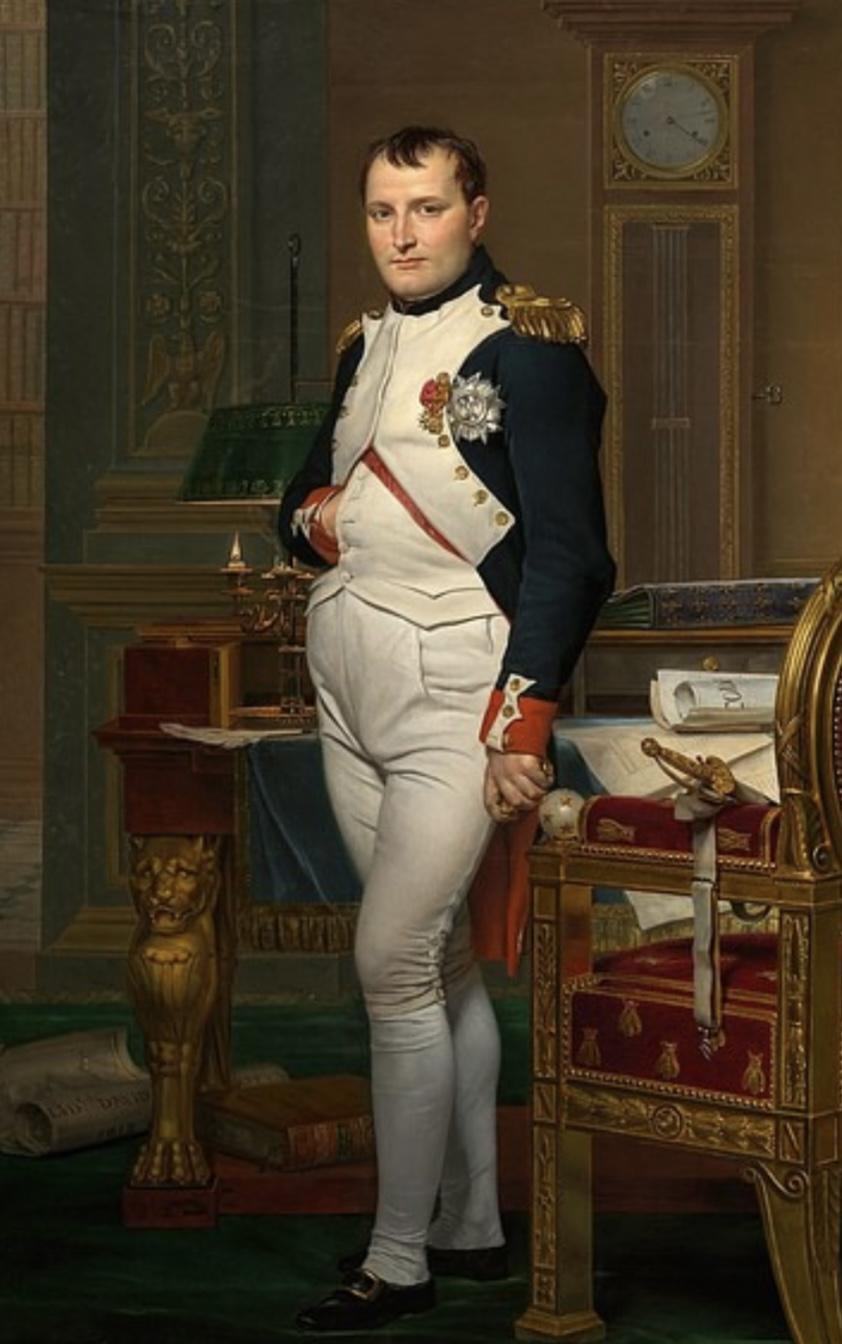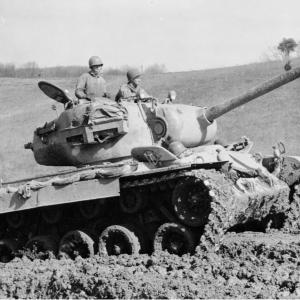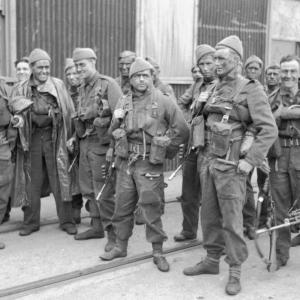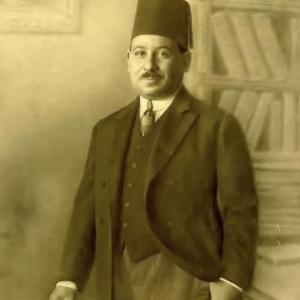
Napoleon
Napoleon Bonaparte was born on August 15, 1769, in Ajaccio, Corsica, shortly after the island became a French territory. He was born into a modest Italian-Corsican family, and although not of noble birth, he received a high-quality education through French military schools. At the age of nine, Napoleon was sent to mainland France for schooling, where he faced prejudice due to his Corsican accent and background. Despite these challenges, he excelled in mathematics and military studies, graduating from the École Militaire in Paris as an artillery officer in 1785 at the age of sixteen.
Napoleon’s early military career coincided with the tumultuous period of the French Revolution (1789–1799), which dismantled the French monarchy and led to widespread political instability. He first gained national attention in 1793 during the Siege of Toulon, where his strategic planning and bold actions led to a decisive Republican victory against British forces. Promoted rapidly, Napoleon became a brigadier general at just 24 years old.
His reputation grew further during the Italian Campaign (1796–1797), where he commanded the French Army of Italy. In a series of swift and innovative military maneuvers, Napoleon defeated the Austrians and their allies, securing favorable terms for France. These victories not only showcased his military genius but also established him as a national hero.
By 1799, the French government—the Directory—was weak and unpopular. Sensing an opportunity, Napoleon returned from a less successful Egyptian campaign and joined a coup d’état known as the Coup of 18 Brumaire (November 1799). With support from key political and military leaders, he dissolved the Directory and established the Consulate, naming himself First Consul. This marked the beginning of his political dominance over France.
In 1804, Napoleon crowned himself Emperor of the French in a lavish ceremony at Notre-Dame Cathedral, symbolizing his authority as derived from himself rather than the Church. This act solidified the transformation of France from a republic into an empire, although many revolutionary ideals—like meritocracy and legal equality—remained part of his administration.
One of Napoleon’s most enduring achievements was the Napoleonic Code, or Civil Code of 1804. This comprehensive legal framework replaced the patchwork of feudal laws that had existed in France. It emphasized individual rights, equality before the law, property rights, and secular authority. The code was so effective that it influenced legal systems across Europe and beyond.
Militarily, Napoleon embarked on a series of campaigns that reshaped the European map. He won major victories at Austerlitz (1805), Jena-Auerstedt (1806), and Friedland (1807), defeating powerful coalitions that included Austria, Prussia, and Russia. At its peak, the French Empire under Napoleon controlled or dominated most of continental Europe.
However, these military successes came at a high cost. Napoleon’s ambition led him to invade Russia in 1812, a campaign that proved disastrous. The French Grand Army, which had marched into Russia with over 600,000 men, was decimated by harsh winter conditions, poor logistics, and fierce resistance. Only a fraction of the army returned.
Following the Russian debacle, a coalition of European powers united against him. In 1814, Paris was captured, and Napoleon was forced to abdicate. He was exiled to the island of Elba, off the coast of Italy. Remarkably, in 1815, he escaped and returned to France, beginning the Hundred Days campaign. His final defeat came at the Battle of Waterloo (June 18, 1815), after which he was exiled to the remote island of Saint Helena in the South Atlantic, where he died on May 5, 1821.
Napoleon Bonaparte remains one of the most studied and controversial figures in world history. His legacy is complex, blending military brilliance with autocratic rule, and revolutionary reform with imperial ambition.
On one hand, Napoleon was a reformer. The Napoleonic Code brought clarity and fairness to the legal system and inspired reforms across Europe. He restructured the French education system, established the Bank of France, and modernized the bureaucracy to reward talent rather than birthright. These reforms helped stabilize France after the chaos of the Revolution and laid the groundwork for the modern French state.
On the other hand, his rule was authoritarian. He censored the press, suppressed political opposition, and engaged in nearly constant warfare that caused immense suffering across Europe. His wars led to the deaths of millions, disrupted economies, and reshaped national boundaries. Despite his promotion of revolutionary ideals, Napoleon ultimately placed himself above democracy by declaring himself emperor.
Internationally, his campaigns helped spread nationalist ideas and contributed to the eventual rise of unified states like Germany and Italy. The redrawing of Europe after Napoleon’s fall at the Congress of Vienna in 1815 aimed to restore monarchies and suppress revolution, but the seeds of change he planted could not be entirely undone.
Napoleon’s story continues to captivate historians, politicians, and military leaders. He is remembered as a tactical genius, a political opportunist, and a symbol of both the promises and perils of revolutionary change. Whether seen as a hero or a tyrant, his impact on history is undeniable.










